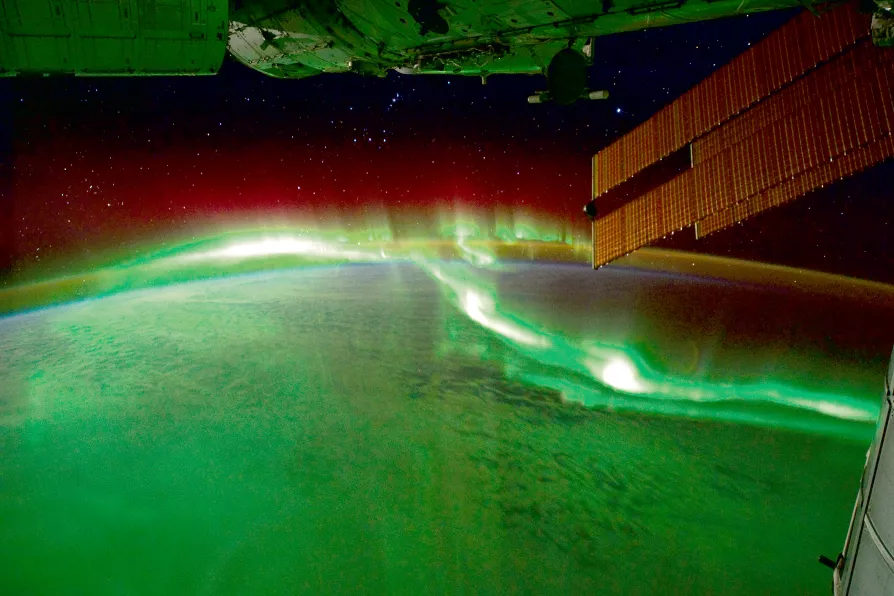As tens of thousands return to the streets for the first national Palestine march of 2026, this movement refuses to be sidelined or silenced, says PETER LEARY

 The Northern Lights as seen from space
The Northern Lights as seen from space
YOU might be surprised to learn that you’re probably carrying a compass in your pocket right now. Although compasses seem old-fashioned, they’re so useful and reliable that smartphones use them to tell you which direction you’re facing.
Compasses use a tiny magnet to demonstrate the orientation of the Earth’s magnetic field. The magnetic field itself is generated from currents in the molten interior of our planet. Currents in such a vast volume of molten iron within the Earth which produce a magnetic field stretching out through the solid outer layers and into space.
And we are lucky that they do. By acting like a big bar magnet, the Earth’s core envelops us in a protective magnetic blanket, which shields the surface from high energy particles from the sun and outer space.
These high energy particles are deflected by the magnetic field and travel along the field lines to the magnetic poles where the field gets stronger and points down into the Earth. As the particles are brought closer to the surface they hit the upper atmosphere and burn up, emitting the beautiful colours of the Northern and Southern lights.
Without Earth’s magnetic field, we’d be exposed to a lot more carcinogenic high-energy radiation, and our power and communications systems would also be in trouble. The main source of danger is the Sun. Like the Earth, it also has magnetic fields. However, unlike the Earth’s, the fields are messy and break out randomly across the sun’s surface.

Neutrinos are so abundant that 400 trillion pass through your body every second. ROX MIDDLETON, LIAM SHAW and MIRIAM GAUNTLETT explain how scientists are seeking to know more about them

WILL STONE applauds a comprehensive survey of love in its many moods and musical forms

JAMES WALSH has a great night in the company of basketball players, quantum physicists and the exquisite timing of Rosie Jones











